Dennis Marks, who has passed away at the young age of 66, was in every way larger than life. A talented and prolific music and arts documentary filmmaker, an inspired head of music for BBC Television, and artistic director of the ENO, he latterly reinvented himself as a consummately erudite and warm-voiced broadcaster who took his listeners on fascinating journeys down the Danube and along the Appian Way.
Dennis was a true European, with a clarity of intellect honed in some of the best British educational institutions (Haberdashers and Cambridge), but with ears and eyes that avidly took account of the rest of the continent. He was steeped in the classics as well as alert to the best of the avant-garde, whether in theatre, music, literature, cinema, architecture or the visual arts.
Our paths first crossed at the BBC in the early 1970s, when we both worked on a crazy, live, whole-evening arts show on BBC2. Initially hosted by Joe Melia in almost circus style, and later more soberly by Melvyn Bragg, Full House, Second House and later The Lively Arts brought together a wide range of young talent who sought to make arts television a thoroughly innovative project, rather than chasing audience figures or opportunistically responding to the big shows being promoted at London’s major arts institutions.
The mind-boggling excess of references never made one feel inadequate
Dennis fitted perfectly into this maelstrom of ideas, and fizzed like no-one else in a team that included such live wires as Nigel Williams, Mike Dibb, Michael McIntyre, Gavin Millar, Tony Staveacre, Tristram Powell and Tony Cash. We shared an office, and every morning he would fly in through the door at breakneck speed, grab his phone while still standing up, and seize the day with fury, while the rest of us slowly emerged from sleep.
I had never met anyone with quite that energy – and the very wide-ranging knowledge of history, politics and the arts to draw upon. It was difficult not to feel left out by his erudition, His strong opinions would have seemed arrogant had they not been underpinned by such intelligence and discrimination. His enthusiasm was so infectious that the mind-boggling excess of references never made one feel inadequate.
We collaborated on a three-hour “Children’s Art” evening for Full House: a series of live events in the studio, which included a mosaic being assembled in real time by pupils from Tollington Park Comprehensive. Dennis put on some riveting theatre, provided by students from the Anna Scher Theatre School, starring an already accomplished Pauline Quirke. He was an inspiring co-worker, insatiably curious about other people’s passions and ready to offer a helping thought or hand.
The intensity and fire of his intellect sometimes got the better of his body and barely masked his very appealing vulnerablity: he was a large, bear-like figure, who never seemed at ease in his physical frame. He bumped into furniture and people, often dropped things and tipped ash from his cigarette pretty well anywhere; he once inadvertently set fire to a waste paper basket during one of our weekly editorial meetings.
I remember well our collaboration on films about Iannis Xenakis, and later the music of Mali and Algeria (for the ground-breaking series Under African Skies, one of the BBC’s first stabs at covering music from other cultures). He was the perfect exec: he knew when to coax and when to encourage, when to criticise or push in a more radical direction.
Dennis had an extraordinary gift for "seeing" a film: coming in to watch a rough-cut he would quickly get the sense of the ways in which the film might be improved, but understanding above all the intentions of the film’s author and director. He had a natural feel for the syntax of film, a language that doesn’t necessarily require commentary or verbal explanation but in which images can speak for themselves. His memory was so prodigious that he remembered every twist and turn of the narrative, down to the exact order of shots in any given sequence.
There was no need, when making a film for Dennis, to think about making the opening zippy and audience-grabbing, in the way that has become so ridiculously cliché-ridden in present-day TV. I remember him coming in to view the film on Xenakis, and encouraging me to be a good deal more daring with the slow and mysterious unfolding of the film’s opening three minutes. He was 100 per cent right and not only is that film still programmed today, but his wise counsel shaped the way I‘ve made films ever since.
Dennis Marks, born 2 July, 1948, died 2 April, 2015





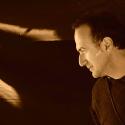
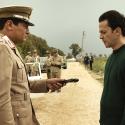
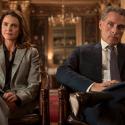
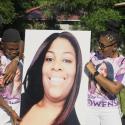
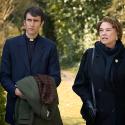

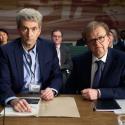

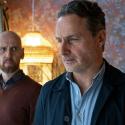

Add comment